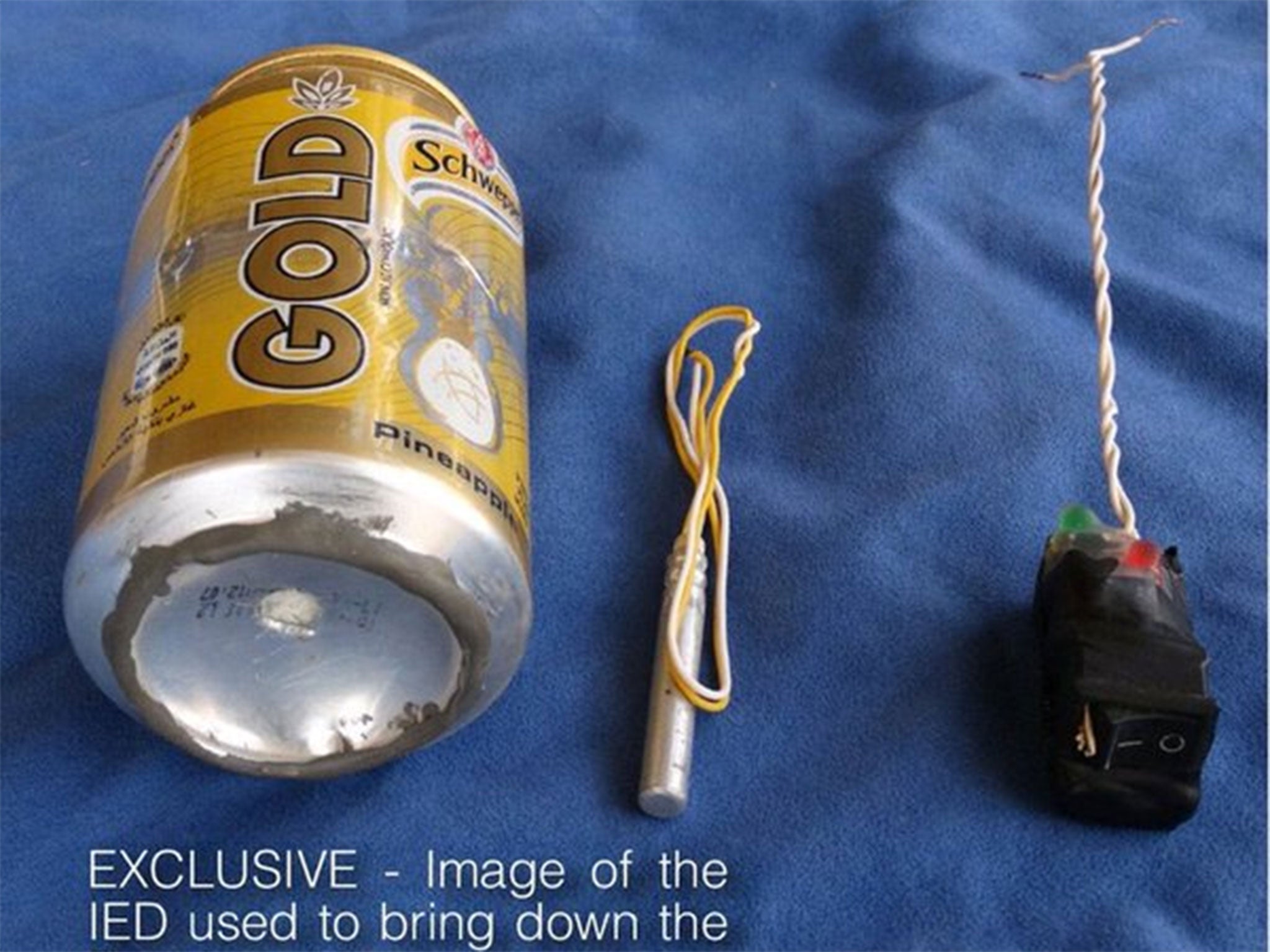Bomb shown by Isis in Dabiq magazine ‘would be capable of bringing down a plane’, expert says
Exclusive: But explosives engineer casts doubt on ‘Hollywood’ details in militant propaganda

Your support helps us to tell the story
From reproductive rights to climate change to Big Tech, The Independent is on the ground when the story is developing. Whether it's investigating the financials of Elon Musk's pro-Trump PAC or producing our latest documentary, 'The A Word', which shines a light on the American women fighting for reproductive rights, we know how important it is to parse out the facts from the messaging.
At such a critical moment in US history, we need reporters on the ground. Your donation allows us to keep sending journalists to speak to both sides of the story.
The Independent is trusted by Americans across the entire political spectrum. And unlike many other quality news outlets, we choose not to lock Americans out of our reporting and analysis with paywalls. We believe quality journalism should be available to everyone, paid for by those who can afford it.
Your support makes all the difference.The “bomb” shown in Isis’s new propaganda magazine would have had enough explosive force to bring down a passenger jet, a leading expert has told The Independent.
The militant group claimed responsibility for destroying the Russian airliner which came down over Sinai on 31 October, and has now released an image which, it says, shows the bomb used.
While there is no way of verifying the “exclusive” image published in the newest edition of “Dabiq”, it tallies with the latest reports from Russian intelligence that a timed explosive device was snuck in to the main cabin of the Metrojet plane.
Dr Sidney Alford, a British explosives engineer, said that the 300ml can, detonator and timer pictured by Isis would have the potential to take down an airliner if it was close enough to the plane’s outer skin.
“Looking at the size of the can, and assuming the density of plastic explosive, that means a 450g bomb. That, appropriately placed, if at all close to outer skin of the aeroplane and not shielded by a great amount of luggage, would probably bring down a plane.”
The metal grooves of the detonator (pictured middle) could not have been replicated by an amateur bomb maker, meaning it was acquired by Isis from a commercial manufacturer.
And while the switch with a timer makes sense given the details provided by Russian intelligence officials, Dr Alford said Isis appeared to have added a “Hollywood-style red light” for show.
While one light would show that the bomb had been activated, there would be no obvious reason to add a second, he said.
“It looks as if that part is probably fake,” he said. “My reason for suspicion is the second light – I can’t think of any reason why there would be two lamps.”
Despite Dr Alford’s theory about the showiness of the “contrivance”, he confirmed that there were a number of ways a bomb this small could bring down even a large passenger plane.
“If I really wanted to bring down a plane and didn’t know where the bomb was going to be placed, as seems to have happened in this case, I wouldn’t want to use a device any smaller,” he said.
“I wouldn’t be amazed on a big plane if it gave the passengers a hell of a fright but enabled the pilots to land.
“But near a fuel tank or vital electronics or near the outer skin and that’s bad news,” he said.
“I wouldn’t like to be in a plane, even a big one, that had that bomb in it.”
Join our commenting forum
Join thought-provoking conversations, follow other Independent readers and see their replies
Comments